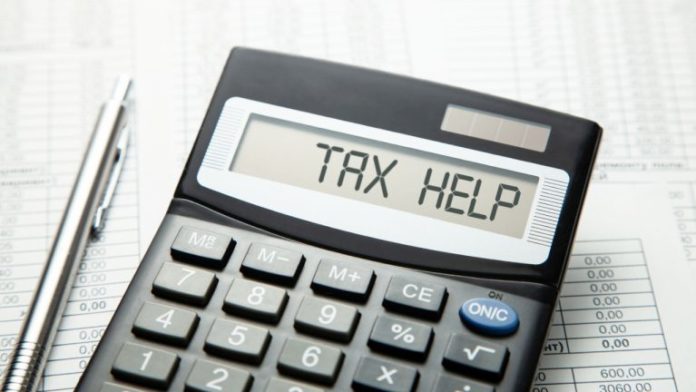
The U.S. Internal Revenue Service (IRS) has started sending out new letters to cryptocurrency owners suspected of owing crypto-related taxes. A tax expert has shared with news.Bitcoin.com what crypto owners should know, including how to handle tax letters from the IRS and avoid an audit.
How to Deal With IRS Letters
The IRS has ramped up its efforts to ensure that cryptocurrency owners pay all crypto-related taxes. It has begun sending out a new round of tax letters similar to the ones sent to about 10,000 crypto owners last year. There are three types of letters, referred to as Letters 6173, 6174, and 6174-A. In addition, the IRS recently moved the cryptocurrency question from Schedule 1 to the top of Form 1040, the main form used by about 150 million people to file their taxes.
Clinton Donnelly, the founder of Donnelly Tax Law, has helped over 12,000 crypto owners with their tax returns, avoiding over $40 million in gains by using like-kind exchange calculations. He has shared some insights with news.Bitcoin.com to help crypto owners deal with the IRS, its crypto question, and tax letters.
BC (Bitcoin.com): What are the differences between the three IRS letters, and how should cryptocurrency owners react to each of them?
CD (Clinton Donnelly): Letters 6174 and 6174A are similar. They advise the taxpayer to double-check that they reported all their income. Letter 6174A goes into a little bit more detail.
Letter 6173 differs by requesting that the taxpayer submit a signed statement if they don’t amend their returns. This statement reads: “I declare under penalties of perjury that I have examined this entire document, including all attachments and accompanying statements, and that the enclosed is true, correct, and complete.” Perjury is the intentional act of swearing a false oath. The sentence is one year in prison and or fines. The wording of this oath is the same as on the Form 1040 when you sign.
Additionally, Letter 6173 is the letter sent to taxpayers suspected of engaging in criminal tax evasion. If you get this letter, you should be concerned.
Receiving this letter means that the IRS has evidence suggesting criminal wrong-doing. Ultimately, it would be best if you contracted with a tax attorney experienced in criminal tax cases. This attorney should employ a top-notch crypto tax audit specialist to do the crypto aspects under the protection of a Koval letter that extends attorney-client privilege to the tax audit team’s work.
BC: What should cryptocurrency owners do if they receive a tax letter from the IRS?
CD: You should contact a tax professional specializing in crypto audits. It would be best if you talked to someone who understands the audit process and how the IRS is treating crypto income in audits. He/she would be the best person from whom to gain your knowledge.
If you receive a letter, it is crucial to understand that you are now on the IRS’ audit radar. That means your odds of being audited are significant.
Remember, an auditor’s job is to find mistakes in your return. It can be expensive to defend yourself against the IRS because audits often take a year and a half to resolve. This stress can take a heavy toll on letter recipients.
Anyone not experienced in crypto audits will make a poor advisor if you’ve received a letter. It’s essential to ask your advisor if they have experience in crypto audits.
BC: Can you elaborate on the crypto holding threshold of taxpayers who got an IRS letter last year versus this year?
CD: I had a couple of dozen clients who got the 2019 letters. These recipients had in common that they all had a crypto portfolio valued at over $900,000 or more in 2017.
It is a mystery how the IRS determined these recipients. Some of them never used U.S. exchanges, yet the IRS was aware that they were whales.
The recipients of the 2020 letters have maximum portfolio balances in 2017 of only $100,000 or more. They also appear to be recipients of Coinbase 1099 forms.
BC: Are taxpayers with only small crypto holdings likely to receive one of these letters from the IRS? Is there a level of crypto holdings the IRS deems “too small” to send letters about?
CD: Every time the IRS mails out a letter, it generates work for them when the taxpayer responds. They do not have the workforce to send out millions of letters. Also, there are diminishing returns as they pursue smaller taxpayers.
BC: How does the IRS find out about taxpayers’ crypto holdings?
CD: The IRS doesn’t disclose their methods, but we gather clues from what IRS executives say and past methods. They have said that they are using data mining techniques to identify those to examine. An obvious clue is receiving a 1099 tax form from U.S. crypto exchanges. They then correlate those against taxpayers who have words like bitcoin, cryptocurrency, or BTC on their return.
The methodologies used in IRS criminal investigation are different than the non-criminal selection process. In a criminal investigation, they use Chainalysis applications, etc., to follow the path of ownership. This methodology is not used in non-criminal cases.
The U.S. has partnered with Australia, UK, Canada, and the Netherlands to collaborate on cryptocurrency criminal activity and money laundering enforcement. This group, known as the J5, share intelligence, and coordinate enforcement.
BC: Do you expect the IRS to send out letters to more than 10,000 crypto owners this year?
The number of letters sent out will match the amount of workload they want to take on.
BC: What kind of audit is the IRS likely to conduct on crypto owners?
CD: I have two clients in full IRS audit of their cryptocurrency reporting, so this is still an evolving story.
The IRS auditors, called Revenue Agents, are specialists in investigative accounting. Different specialists support them. There are crypto-trained specialists that the auditor relies on to understand the crypto results. They can also contract crypto gain calculator companies to do their gains calculations and participate in interviews.
It is clear to me that these initial audits will be a learning experience for the IRS. Crypto reporting is so complicated that they will be studying the best ways to do a crypto audit.
BC: What fees and penalties are taxpayers who do not report their crypto income likely to incur?
CD: The purpose of the audit is to determine the correct amount of tax owed by a taxpayer. If a taxpayer is determined to owe more taxes than were paid, this amount is called the understatement. Since this amount should have been paid originally, a failure-to-pay penalty is added. This amount is 0.5% of the understatement per month for the first 36 months from when it was originally due. Interest is charged on the understatement from the original due date. The interest rate is changed quarterly. Presently, the annual interest rate is 5%.
Finally, the accuracy-related penalty is added under tax code section 6662. This penalty is 20% of the understatement if the additional tax more than the greater of 10% of the tax required to be shown on the return for the taxable year or $5000. In certain situations, the penalty can be increased to 40%.
If the auditor determines that the taxpayer had been intentionally deceptive on the return, the accuracy penalty is replaced by a 75% fraudulent return penalty.
BC: What do you think of the crypto question the IRS asks on Form 1040?
CD: The question intends to educate the taxpayer on the need to report crypto income. The term “virtual currency” is not defined in the tax law or regulations. It only appears on an IRS Notice 2014-21, which is not binding. Further, the definition of virtual currency is very broad, including frequent flyer miles and shopper loyalty point cards. So, by the IRS definition, almost every taxpayer should say Yes.
They could have just made a statement on the front page of Form 1040. Instead, they expressed it as a yes or no question. That converts the answer into a legal statement signed with an oath of perjury.
To me, this question seems to violate the first amendment protections on free speech by making the act of owning virtual currency a stigma. The fifth amendment protection against self-incrimination entitles a citizen not to answer such a question without due process.
BC: What is the significance of the IRS moving the crypto question from Schedule 1 to the top of Form 1040?
CD: A common complaint is that taxpayers were unaware of the need to report cryptocurrency income. All taxpayers will be without excuse in 2020. In 2019, the virtual currency question was on Schedule 1, which is not a Schedule that is always required.
BC: Will taxpayers who answer “yes” to the crypto question on Form 1040 (or Schedule1) still receive a tax letter from the IRS?
CD: Most taxpayers are terrified of this question. The existence of the question has caused many people to be more diligent in reporting their crypto income. But I strongly doubt all who check “Yes” will receive a letter.
BC: If taxpayers used to trade crypto but not in the past couple of years, does answering “no” to the crypto question on Form 1040 raise a red flag to the IRS and increase their chance of an audit?
CD: Good question. The IRS is using data mining techniques for determining who to examine. The method outlined in the question could be part of that analysis.
The U.S. federal tax system is voluntary. (It is much more voluntary than other developed countries.) The IRS depends heavily on collective fear to encourage compliance. The fear of being audited is massive.
In my experience, smaller investors have a greater fear of being out-of-compliance than larger investors.
No question placing the virtual currency question on the top half of the first page of the return is designed to increase crypto-owners’ fears drastically.
Are you worried about receiving a letter from the IRS? Let us know in the comments section below.
The post Targeted by IRS? What Cryptocurrency Owners Should Know appeared first on Bitcoin News.

Bitcoin.com is author of this content, TheBitcoinNews.com is is not responsible for the content of external sites.
Our Social Networks: Facebook Instagram Pinterest Reddit Telegram Twitter Youtube










